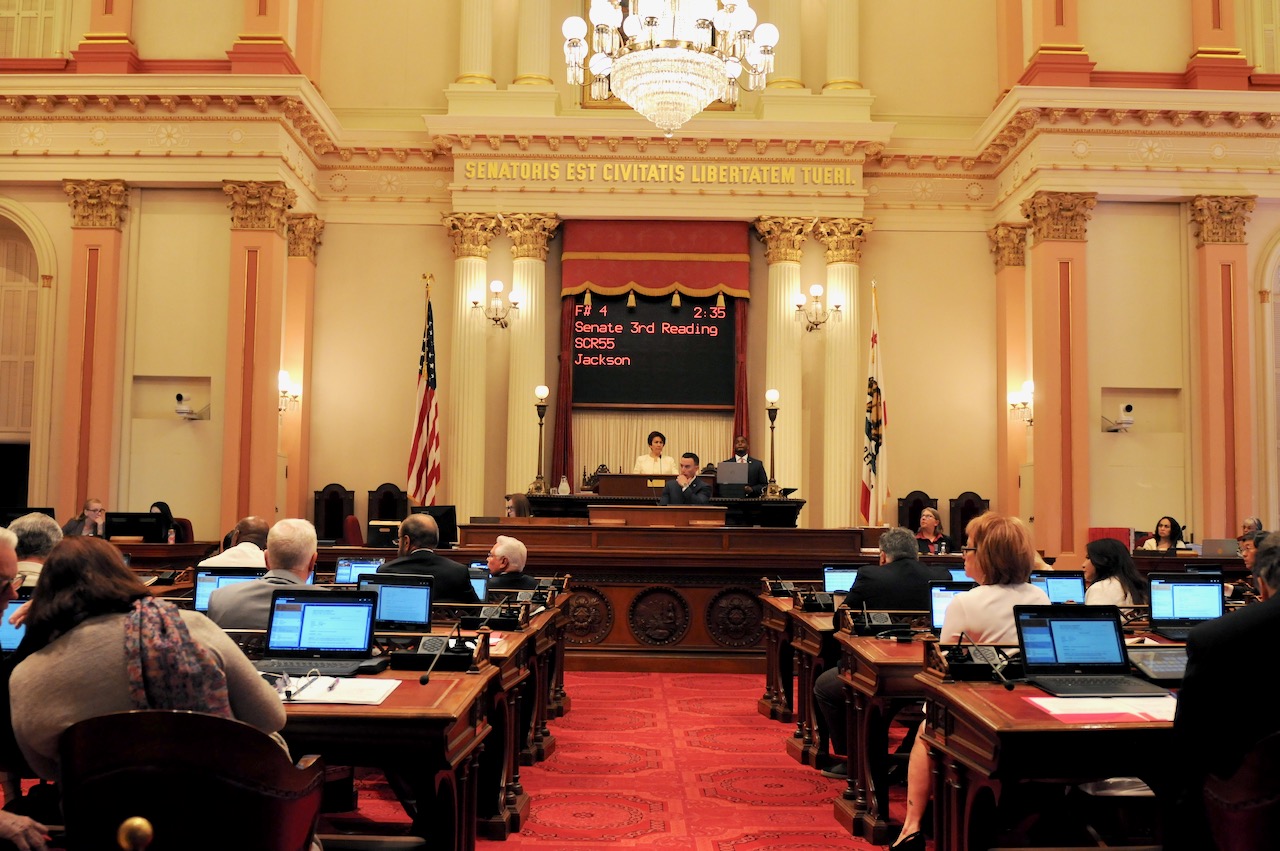
California State Capitol. (Photo: Kevin Sanders for California Globe)
Posting or Sale of Public Officials’ Personal Info in California
It is a violation of California law to post online or sell personal information of elected or appointed official
By Chris Micheli, August 23, 2024 2:30 am
It is a violation of California law to post online or sell personal information of elected or appointed officials. California’s Government Code, Title 1, Division 10, Part 5, Chapter 14, Article 3 concerns this topic.
Section 7928.200 states that an interactive computer service or access software provider cannot be held liable under this article unless the service or provider intends to abet or cause imminent great bodily harm that is likely to occur or threatens to cause imminent great bodily harm to an elected or appointed official.
Section 7928.205 prohibits any state or local agency from posting the home address or telephone number of any elected or appointed official on the internet without first obtaining the written permission of that individual.
Section 7928.210 prohibits any person from knowingly posting the home address or telephone number of any elected or appointed official, or of the official’s residing spouse or child, on the internet knowing that person is an elected or appointed official and intending to cause imminent great bodily harm that is likely to occur or threatening to cause imminent great bodily harm to that individual. A violation of this section is a misdemeanor. Also, a violation of this section that leads to the bodily injury of the official, or the official’s residing spouse or child, is a misdemeanor or a felony.
Section 7928.215 defines the terms “publicly post” and “publicly display” to mean when someone intentionally communicates or otherwise makes available to the general public.
Persons, businesses, and associations are prohibited from publicly posting or publicly displaying on the internet the home address or telephone number of any elected or appointed official if that official has, either directly or through an agent, made a written demand of that person, business, or association to not disclose the official’s home address or telephone number.
In addition, a written demand made under this section by a state constitutional officer, a mayor, or a Member of the Legislature, a city council, or a board of supervisors is required to include a statement describing a threat or fear for the safety of that official or of any person residing at the official’s home address.
A written demand made under this section by an elected official is effective for four years, regardless of whether the official’s term has expired before the end of the four-year period. And, a person, business, or association that receives the written demand of an elected or appointed official pursuant to this section must remove the official’s home address or telephone number from public display on the internet within 48 hours of delivery of the written demand.
Additionally, after receiving the elected or appointed official’s written demand, the person, business, or association is prohibited from transferring the appointed or elected official’s home address or telephone number to any other person, business, or association through any other medium.
Section 7928.220 authorizes an elected or appointed official to designate in writing the official’s employer, a related governmental entity, or any voluntary professional association of similar officials to act, on behalf of that official, as that official’s agent with regard to making a written demand pursuant to this article.
In addition, an appointed official who is a district attorney, a deputy district attorney, or a peace officer may also designate the official’s recognized collective bargaining representative to make a written demand on the official’s behalf pursuant to this article. A written demand made by an agent must include a statement describing a threat or fear for the safety of that official or of any person residing at the official’s home address.
Section 7928.225 provides that, if an official’s home address or telephone number is made public as a result of a violation of this law, that official may bring an action seeking injunctive or declarative relief in any court of competent jurisdiction.
In addition, if a court finds that a violation has occurred, it may grant injunctive or declarative relief and is required to award the official court costs and reasonable attorney’s fees. Moreover, a fine not exceeding $1,000 may be imposed for a violation of the court’s order for an injunction or declarative relief obtained pursuant to this section.
Section 7928.230 prohibits any person, business, or association from soliciting, selling, or trading on the internet the home address or telephone number of an elected or appointed official with the intent to cause imminent great bodily harm to the official or to any person residing at the official’s home address.
In addition, an official whose home address or telephone number is solicited, sold, or traded may bring an action in any court of competent jurisdiction. If a jury or court finds that a violation has occurred, it is required to award damages to that official in an amount up to a maximum of three times the actual damages but in no case less than $4,000.
In addition, Article 4 of Chapter 14 deals with the personal information of agency employees. Section 7928.300 provides that the home addresses, home telephone numbers, personal cellular telephone numbers, and birthdates of all employees of a public agency are not public records and must not be open to public inspection. There are four exceptions provided in this section.
Moreover, the personal email addresses of all employees of a public agency are not to be deemed to be public records and are not open to public inspection, with specified exceptions. However, this does not limit the public’s right to access the content of an employee’s personal email that is used to conduct public business.
In addition, upon the written request of any employee, a public agency is prohibited from disclosing the employee’s home address, home telephone number, personal cellular telephone number, personal email address, or birthdate and an agency is prohibited from removing the employee’s home address, home telephone number, and personal cellular telephone number from any mailing list maintained by the agency, except if the list is used exclusively by the agency to contact the employee.
- Service of Summons in California Civil Actions - December 11, 2024
- Sunset Clause Versus Repeal Clause - December 10, 2024
- Describing a Spot Bill - December 9, 2024





Gee, and I was thinking how much more elected officials could be understanding of the crime inflicted on us by all these thugs by showing these thugs where these people making the laws lived.
They might even be more supportive of the 2A for protecting oneself. And I think they’d be a lot more compassionate towards the risks that police officers have to endure on our behalf, and perhaps not try to defund them.